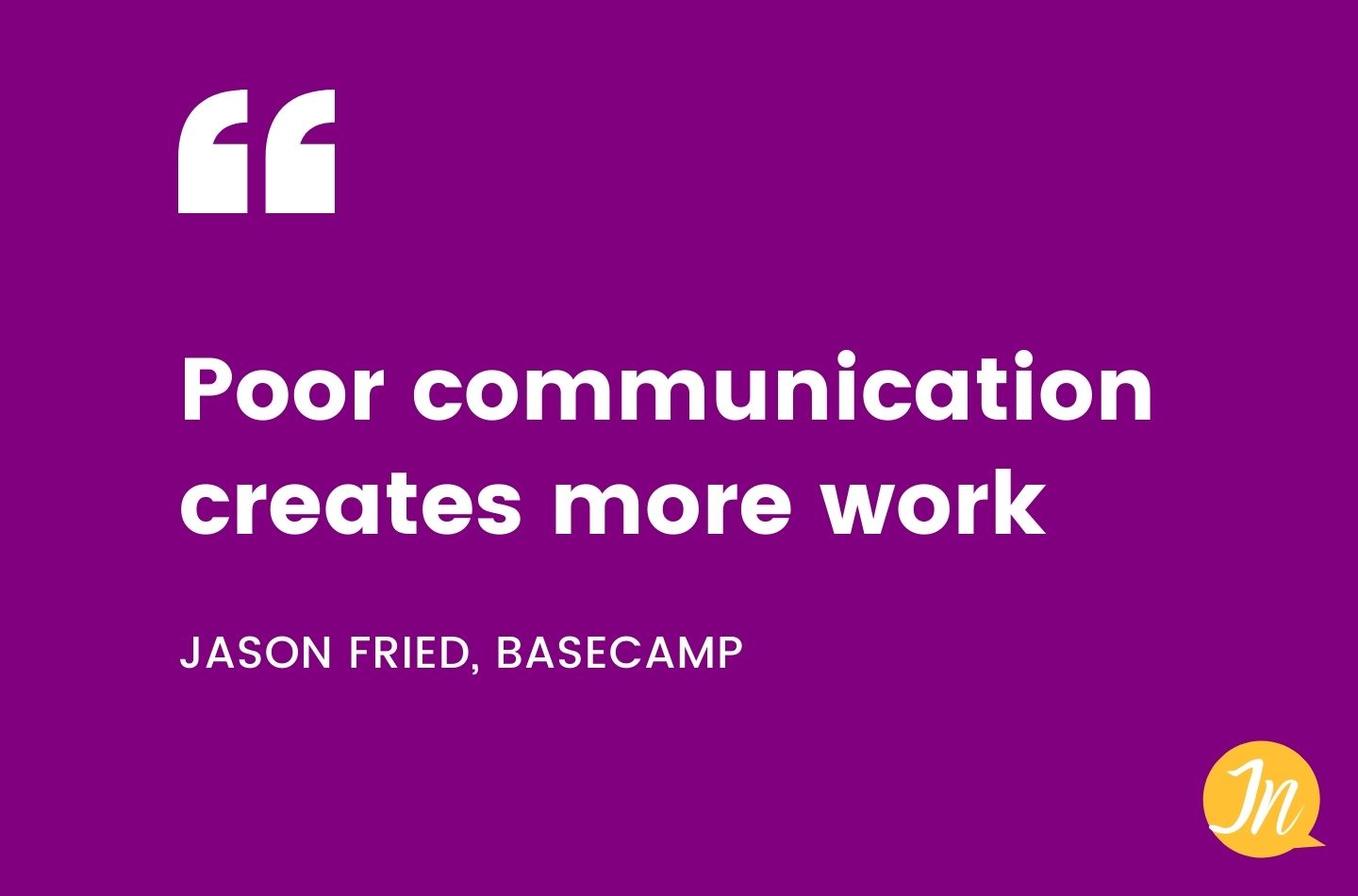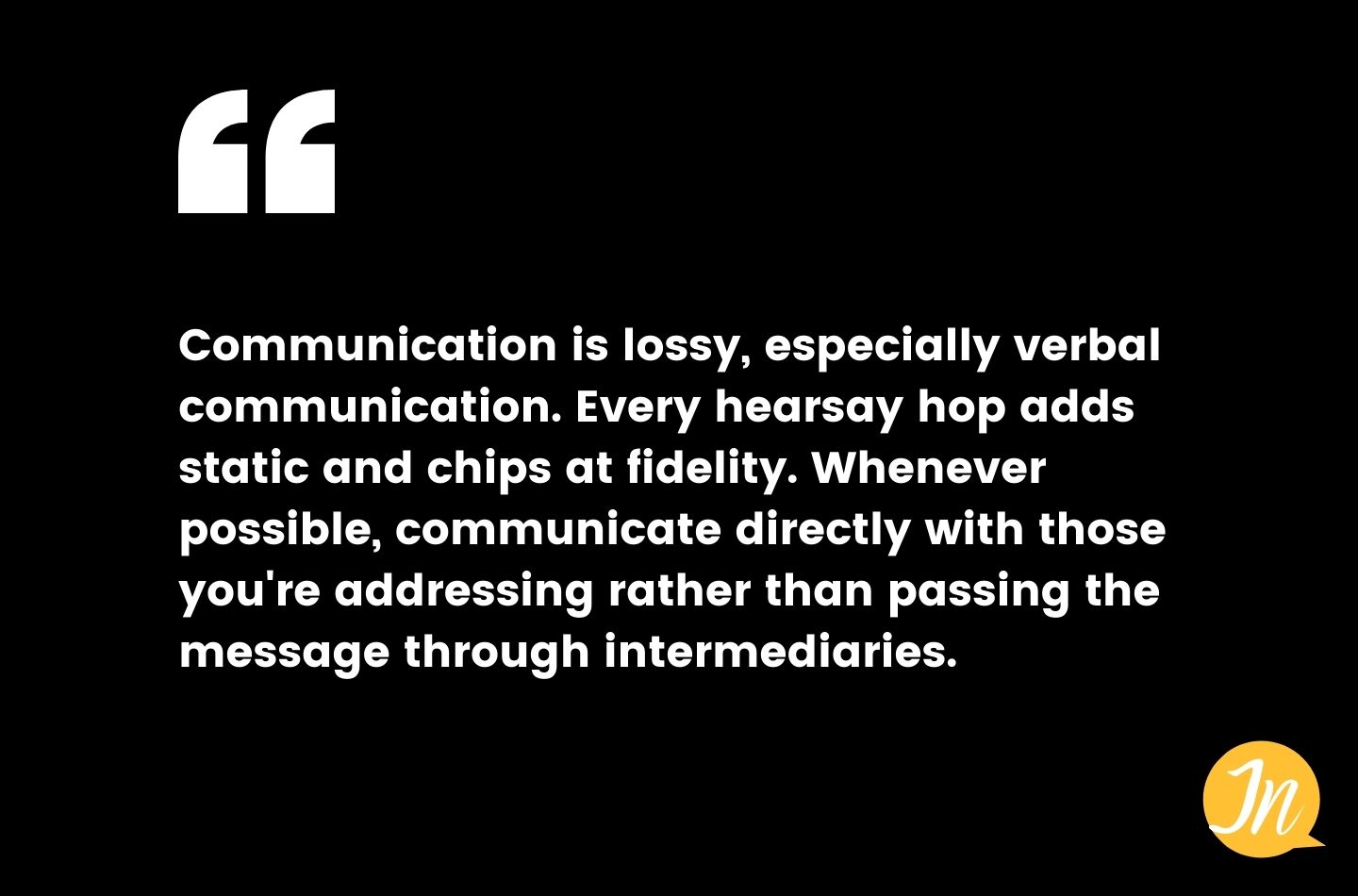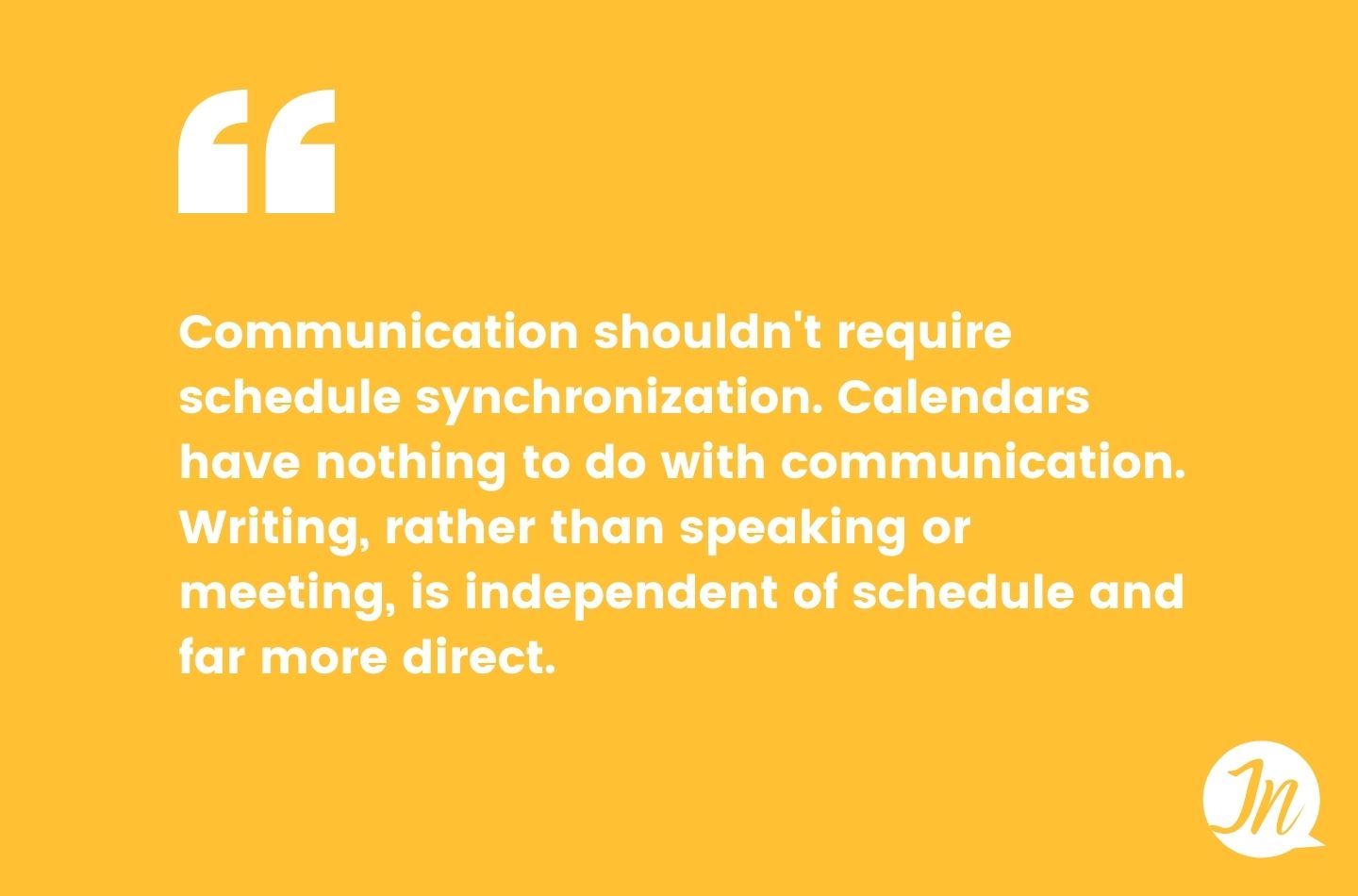Do you know how much time you spend in meetings every week, on average? I’ll give you some time to think about it. Add up every client meeting, progress update, drive-by check-in, touch-base session, and “quick” team call that pops up throughout your average week. Now add the meeting prep time to this and any notes/debrief time. Write that number down, because we’ll be circling back to that.
A recent survey of many, many meetings – 19 million to be exact – revealed what people have always known. Meetings waste an inordinate amount of our time. The research originates from INC, a publication that caters solely to owners and managers of growing private companies. They concluded that meetings are costing U.S. companies a whopping $399 billion in 2019 (yep, that’s billion with a B).
And this isn’t the bane of big corporations only! As a freelancer, I often find myself in a tug of war for my own time and productivity with clients who love the idea of frequent meetings. Interestingly, it doesn’t matter if you’re the client or the consultant. Your time is your most valuable resource and it should be spent doing what you do best – your work.
The Problem

One of my all-time favourite project management platforms, Basecamp, established their meeting philosophy early on and it’s one that I can relate to. Through their own experience deploying multiple projects with a dispersed team, they analyzed the fundamental issues with synchronous communication. Their conclusion? Meetings usually arise when an idea isn’t clear enough.
Instead of simplifying that idea however, most businesses fall into the trap of wanting to meet about it. What they don’t realize (or if they do, they assume it’s just the cost of doing business) is that those meetings come with painful trade-offs.

1. Meetings interrupt your flow and divide your day into smaller, less organized chunks.
If your work requires sustained concentration, you’re most likely engaging in what’s called deep work. Georgetown computer science professor Cal Newport coined the term to describe the ability to focus without distraction on a cognitively demanding task. Well, you better believe it’s much harder to return to deep work once you’ve been interrupted! Coding, design, financial modeling, and even long-form writing can suffer because a meeting sliced through that deep work session.
2. Meetings are often disorganized and thus, waste time.
By their very nature, meetings convey significantly less information per minute than writing. What’s more, an absurd number of meetings don’t have set agendas or if they do, they’re vague enough that the goal is easily confused. Meetings make it harder to accommodate different personalities, so there are always one or two time-wasters (you know the ones) hijacking and derailing the process. If you’ve got a diverse team, it’s likely that extroverts are driving the conversation. While your project could benefit from the introverts’ input, they can’t get a word in edgewise.
3. Meetings are vague and confusing to at least some of the attendees, if not most.
How often have you been invited to a meeting where you had no idea what your role was or what was going on? Someone thought you needed to be there and you realized, much too late, that you certainly didn’t. Or at the very least, that your input could have easily fit into a single email sentence. Other times, there’s meeting preparation involved that no one had time to complete beforehand. So the majority of the meeting is spent reviewing the documentation instead of moving things forward.
There are many more trappings that we could get into, like how too many meetings don’t leave you enough time to do your actual work, or how people leaving the same meeting can still somehow be on a different page about the takeaways and tasks assigned.
But beyond what we as individuals may feel about meetings, there are much broader consequences to think about. A study of organizations from the automotive supply, metal, electrical, chemical, and packaging industries showed that dysfunctional meeting behaviour correlates with lower levels of market share, innovation, and employment stability.
The Excuses

Meetings have become entrenched in work culture. So much so that we’ve even forced non-traditional work setups like consulting, remote work, contracting, etc., to incorporate them. The COVID-19 pandemic made this clear. Instead of developing alternative methods of communication, companies attempted to move all of their regular meetings (including those 100+ attendees meetings) to Zoom. Why? According to the Harvard Business Review, because “Those who resent and dread meetings the most also defend them as a “necessary evil”—sometimes with great passion.”
The Alternative

Instead of improving communication and collaboration as intended, bad meetings actually undermine those things. And many of the solutions meant to address the problem are so specific that they’re inherently limited in their applicability and long-term potential for change.
There are many platforms out there that boast of making business communication easier and, especially in 2020, remote work more collaborative. While I’m sure they all have their uses and benefits, Basecamp worked for me quickly and without stress. Plus, learning about their philosophy reassured me that I wasn’t a crazy person with a ridiculous vendetta against time-sucking meetings.
To be clear – and this needs to be said – not all meetings are toxic. Oftentimes it takes a meeting to achieve a specific goal at a specific point in a project timeline. We’ll get into the tools and tactics to help make those necessary meetings productive and exciting… next time! Keep that weekly meeting number handy, because you’ll need it.


Pingback: Batting a Thousand: How To Become a Project Brief Boss
Great article. I once worked as a consultant with an engineering firm and on more than one occasion, I asked myself why I was asked to attend a meeting when I had to tangible input to contribute and whatever was being discussed was of no consequence to my work. VERY frustrating. It would totally mess up my workflow, I would leave the (always longer than 1 hour) meeting completely drained and in no mood to resume work.
I can totally relate, Christine. I find this to be way too common and until I learned of another way, I was sure this was just “how things are”. But they don’t have to stay this way! I’m hoping that the shift towards more remote work also leads the way to alternative thinking when it comes to synchronous meetings.
Thanks for commenting!